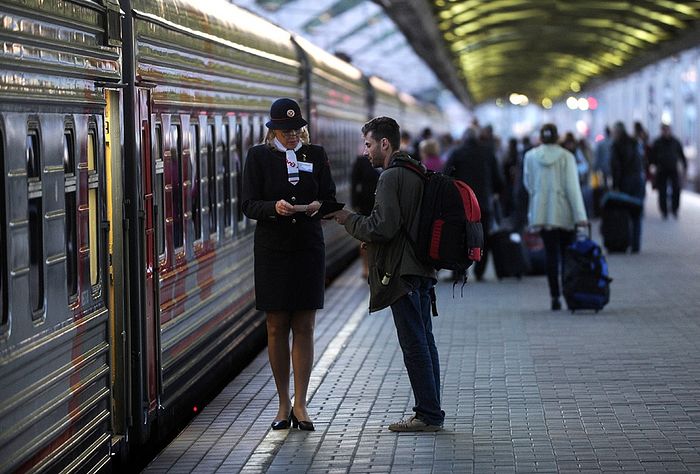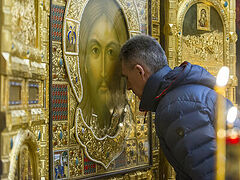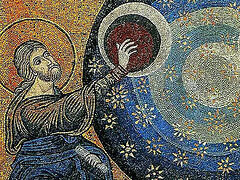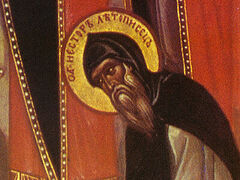This story took place in the year 2013, when a conference was organized in Kharkov dedicated to the 1000-year anniversary of St. Nestor the Chronicler. I was invited to give a report, and asked to conduct a plenary committee.
So that I wouldn’t be late, I came to the Kiev train station with time to spare. I looked at the timetable, but the Kharkov train was not on it. I went out to the platform, but I didn’t see a train standing. A vague anguish stole upon me—did I mixed something up? There was only a half and hour left till the train’s departure, but there was still no train. I looked at my ticket, and to my horror discovered that the train leaves not from the Kiev station but from the Kursk station! In my confusion I even forgot which side the exit to the metro station was on! I asked a policeman, and he pointed the way.
And as it has happened before, I started praying, trying to calm myself down. Calm is the absence of movement. Time is the symbol of movement. If there’s no movement, time stops, I thought to myself. But time was treacherously galloping on. As if on purpose, the doors at the metro stops took a long time to close. And it looked like a total mockery of me when the metro arrived at the “Kurskaya” station at exactly the time of the Kharkov train’s departure.
I could have stopped running but I decided to see it to the end. I started praying to St. Nestor, the organizer of conferences and patron saint of writers, and ask for his help. It would be shameful for me to admit to my Ukrainian colleagues that out of inattention I had confused the stations, was late for the train, and didn’t arrive at the conference. I resented the absurdity of it all.
With these thoughts, I didn’t cease to pray to St. Nestor, and I dragged my heavy suitcase up the escalator. On the final steps I had no more strength, and I still had to go through a long tunnel and, just to clear my conscience find the platform from which my train would have already left long ago…
As I walked through the tunnel, I read the timetables hanging there—and suddenly, on one of them I saw the line: “Moscow – Kharkov.”
“Probably they just haven’t changed it yet,” I thought, as I walked up the stairs with difficulty.
To my surprise, two trains were puffing on either side of the platform, and near them the conductors stood calmly conversing.
“Which is the train to Kharkov?” I asked.
One of the conductors pointed to his car.
“Can I sit in your car, and then make my way to my own?”
“Don’t rush, you have time,” he answered. “Someone’s held up the train for another five minutes.”
I decided not to risk it and alighted the nearest car. A couple of minutes later the train pulled out of the station, and I sat for a long time catching my breath and regaining my composure.
At the end of the conference, the committee praised St. Nestor the Chronicler who had gathered us all together in Kharkov.
“And I might have missed the conference, even though I had a ticket in my pocket,” I confessed, and told them what had happened to me.
After repeating the words of the conductor that someone had held up the train’s departure, I asked in all seriousness:
“Now, who could that have been?”
Everyone there looked at the icon of St. Nestor the Chronicler and laughed.




